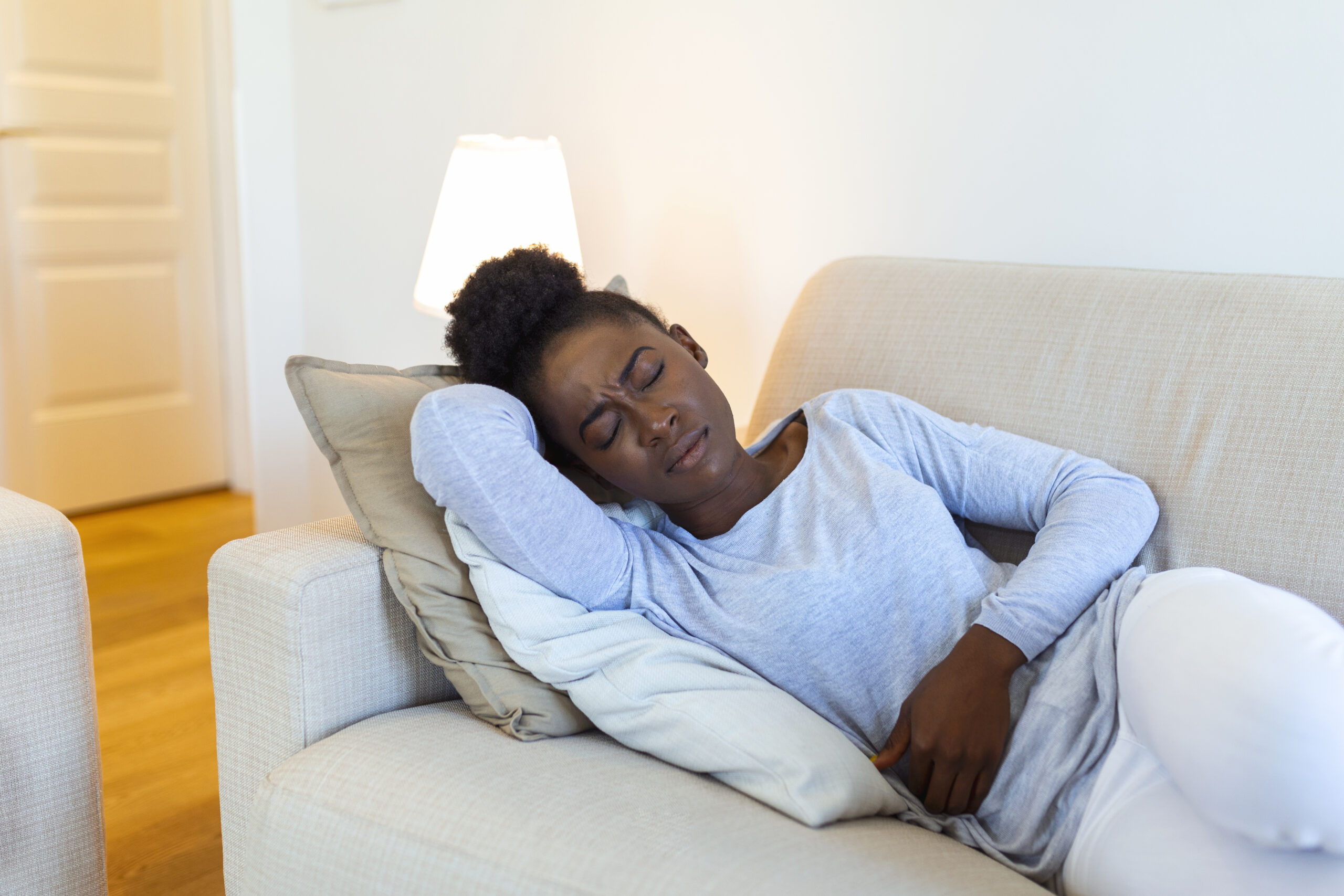If there is one thing that leaves many women in great discomfort, it is that throbbing pain they experience just before or during their menstrual periods. This uncomfortable, painful sensation, also known as dysmenorrhea, usually begins after ovulation; the period when an egg is released from the ovary and travels down the fallopian tube.
Causes
So, what causes this pain? Muscle contractions in the uterus (which can cause pain and inflammation) enables the shedding of the uterus lining every month. The contractions are triggered by hormones known as prostaglandins. Once these hormones are released from the uterine lining, the force of the muscle contractions increases usually during the first few days of menstruation, therefore the higher the level of prostaglandins, the more severe the pain gets. Menstrual pain can also be caused by
Endometriosis
In this disorder, a similar tissue like the tissue which usually lines the inner part of the uterus (the endometrium) grows at the outer part of the uterus. The disorder causes pain, which is sometimes severe, especially during the menstrual period. Nonsteroidal anti-inflammatory drugs (NSAIDS), Ibuprofen (Advil, Motrin IB) or naproxen sodium can help ease the pain of endometrial tissues.
Uterine Fibroids
These are growths (noncancerous) of the uterus which consist of the muscles and connective tissues from the wall of the uterus. The growth can cause excessive bleeding or painful bleeding during menstruation.
Drugs such as acetaminophen and ibuprofen can be used to manage the discomfort the fibroid causes. Birth control options such as oral contraceptive pills, intravaginal contraception, injections and intrauterine devices (IUDs) are also available for use.
Adenomyosis
This is another disorder where the endometrial tissue; the tissue that lines the uterus, grows into the muscular wall of the uterus. This causes severe menstrual cramps, heavy or extended bleeding and a sharp pelvic pain during menstruation.
Drugs such as acetaminophen and ibuprofen can be used to manage the discomfort the fibroid causes. Birth control options such as oral contraceptive pills, intravaginal contraception, injections and intrauterine devices (IUDs) are also available for use.
Pelvic Inflammatory Disease
This is an infection in the female reproductive organs which occurs when sexually transmitted bacteria escalate from the vagina to the uterus, fallopian tubes or ovaries. It causes mild to severe pain in the pelvis and lower abdomen as well as abnormal bleeding patterns.
The disease can be curbed by practicing safe sex and using preventive methods like condoms to reduce the risk of infection.
Cervical Stenosis
A condition which causes the cervix to become small or close off altogether, blocking the path between the uterus and the vaginal canal. The condition is characterized by irregular menstruation, no menstruation(amenorrhea), abnormal bleeding and pain during menstruation.
Symptoms
Menstrual cramps range from mild to severe and may present the following symptoms:
- Lower back ache
- Nausea and vomiting
- Pain in the thighs
- Headaches
- Diarrhoea or loose stools
- Dizziness
- Bloating
- Sweating
- Throbbing or pain in the lower abdomen
Risk Factors
According to research, there is a likelihood of a person experiencing severe cramps if she:
- Began puberty at a very early age.
- Is below the age of thirty (30) years.
- Has a history of menstrual cramps in her family.
- Has heavy menstrual flow.
- Has irregular menstrual bleeding.
Relieving the Pain
Aspirin, naproxen, ibuprofen and acetaminophen are some of the pain relievers which help to ease menstrual cramps. Placing a hot water bottle or heating pad on your stomach or lower back can do some magic. A warm bath during the cramping season can also provide some relief. Please note that some of the pain relievers mentioned may not be suitable for you and can have negative side effects. For example, stomach ulcers may be aggravated when you take aspirin, so you need to consult a doctor or pharmacist before taking a specific pain reliever.
Prevention
You may do the following to prevent or reduce menstrual cramps:
- Exercise regularly.
- Stay away from tobacco and alcohol.
- Desist from regularly taking foods that contain caffeine and salt.
- Manage stress; practice meditation or yoga.
- Acupuncture may be of help.
It is important to note that before you can take any medication (either oral or anal) to relieve menstrual cramps, you must talk to a doctor or pharmacist to know the side effects of the drugs, the doses to take, the activities not to do once the drug is taken and health conditions the drugs may aggravate.
Get all your pain relievers delivered to you from pharmacies near you through the Progpharma app if you are in Accra, Ghana. You can also ask a pharmacist any question concerning menstrual pain relievers using the chat option of the Progpharma app and get a prompt response.
